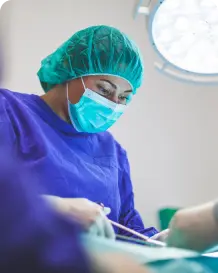Nephroureterectomy Treatment: What You Need To Know
Nephroureterectomy is a minimally-invasive radical removal of the kidney, renal pelvis, the entire ureter, and the bladder cuff. Find the different treatment methods for a nephroureterectomy. Nephroureterectomy is a minimally-invasive radical removal of the kidney, renal pelvis, the entire ureter, and the bladder cuff. Find the different treatment methods for a nephroureterectomy.
Happy patients
 50+
50+
Expert surgeons
Personal Assistance







